"When I Tell Mental Health Patients 'I Was Once Like You', It Gives Them Hope"
Ezra Shekel works as a companion at the Soteria House and is responsible for the care and guidance of people with mental health issues. He came to this profession after being hospitalized in a psychiatric ward himself. 'It's hard to see a person imprisoned in themselves or facing an attack,' he says, 'but there is always hope.'
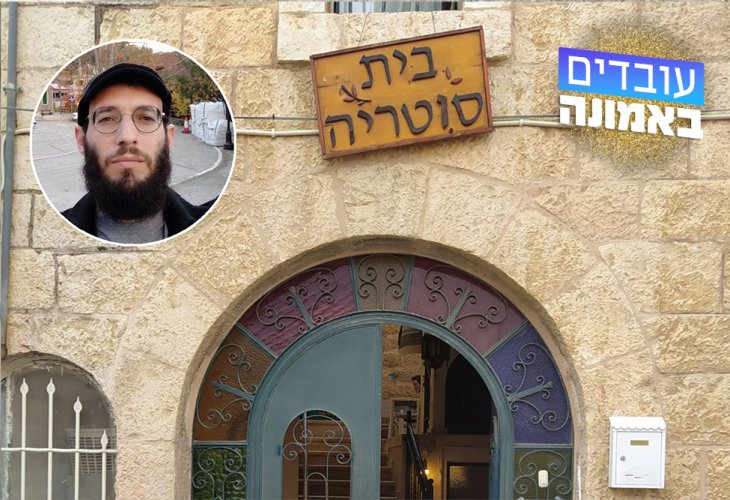 (In the circle: Ezra Shekel)
(In the circle: Ezra Shekel)When Ezra Shekel sits across from residents at the Soteria House in Jerusalem due to mental illness, he has a standard line that he uses to introduce himself. 'Look at me,' he tells them, 'I was once exactly like you – I was hospitalized in Kfar Shaul, in a day unit, and had to part from my children and wife. I've experienced the struggle, and behold, I managed to get out of it, and now I'm here as a companion and staff member. Believe in yourself, because there's always a chance.'
According to Shekel, these simple and direct words do wonders. 'The longer I am in this position at the Soteria House, the more I see how much my difficult past aids me in this job. While in other workplaces such a past might be seen as a burden, here it is like a peacock's feathers. When I sit opposite someone who is hospitalized and say: "Listen, I was also in your situation," it really opens doors. It illustrates to them that there's a possibility to overcome it, to return to normal life, and to be functional and happy. Of course, there's also the professional advantage, as I can easily empathize with the residents without having studied psychology or psychiatry, simply from personal experience and life lessons.'
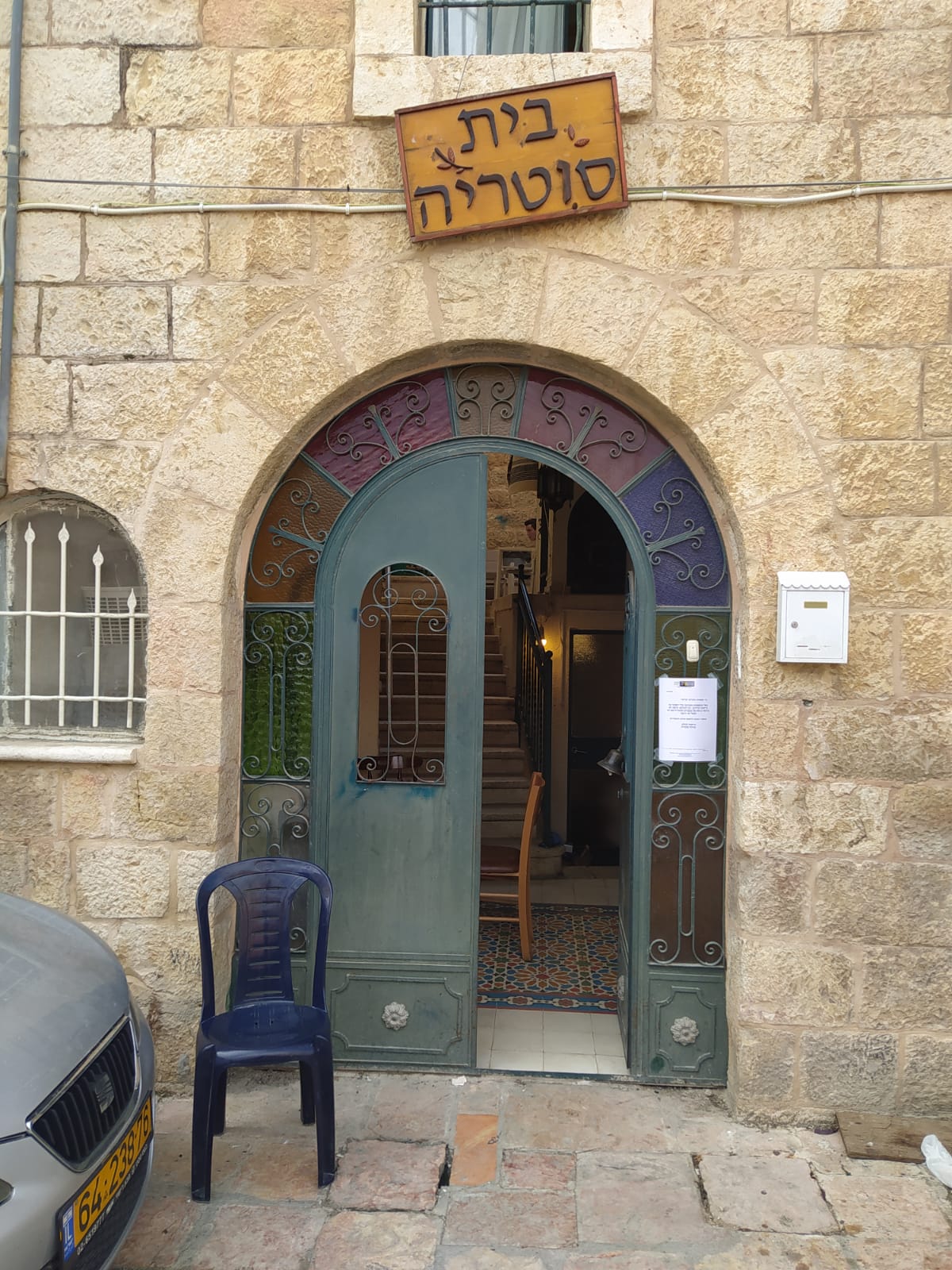 At the Soteria House in Jerusalem
At the Soteria House in Jerusalem
A House, Not an Institution
Shekel shares about the Soteria House: 'Soteria is essentially a balanced house that’s meant to serve as an alternative to psychiatric hospitalization. Soteria houses exist not only in Israel but all over the world, with the concept based on the understanding that the community needs to learn to include different individuals without hospitalizing them in a distant and alien institution. There are two Soteria houses in the country – in Jerusalem and Kefar Yona.'
Shekel notes that he himself works in the Soteria House in Jerusalem as a 'companion'. 'We intentionally define ourselves as "companions" rather than "instructors" or "therapists", because that's exactly the idea of Soteria – to create as little hierarchical perception as possible. Who says I can instruct the resident more than they can instruct me? It's true they're currently in a crisis, which is why they're hospitalized here, but there may be many other areas where they can contribute to me. There's no reason to only look at their difficulty, rather we need to see them as a person, with their whole being, as a world unto themselves.'
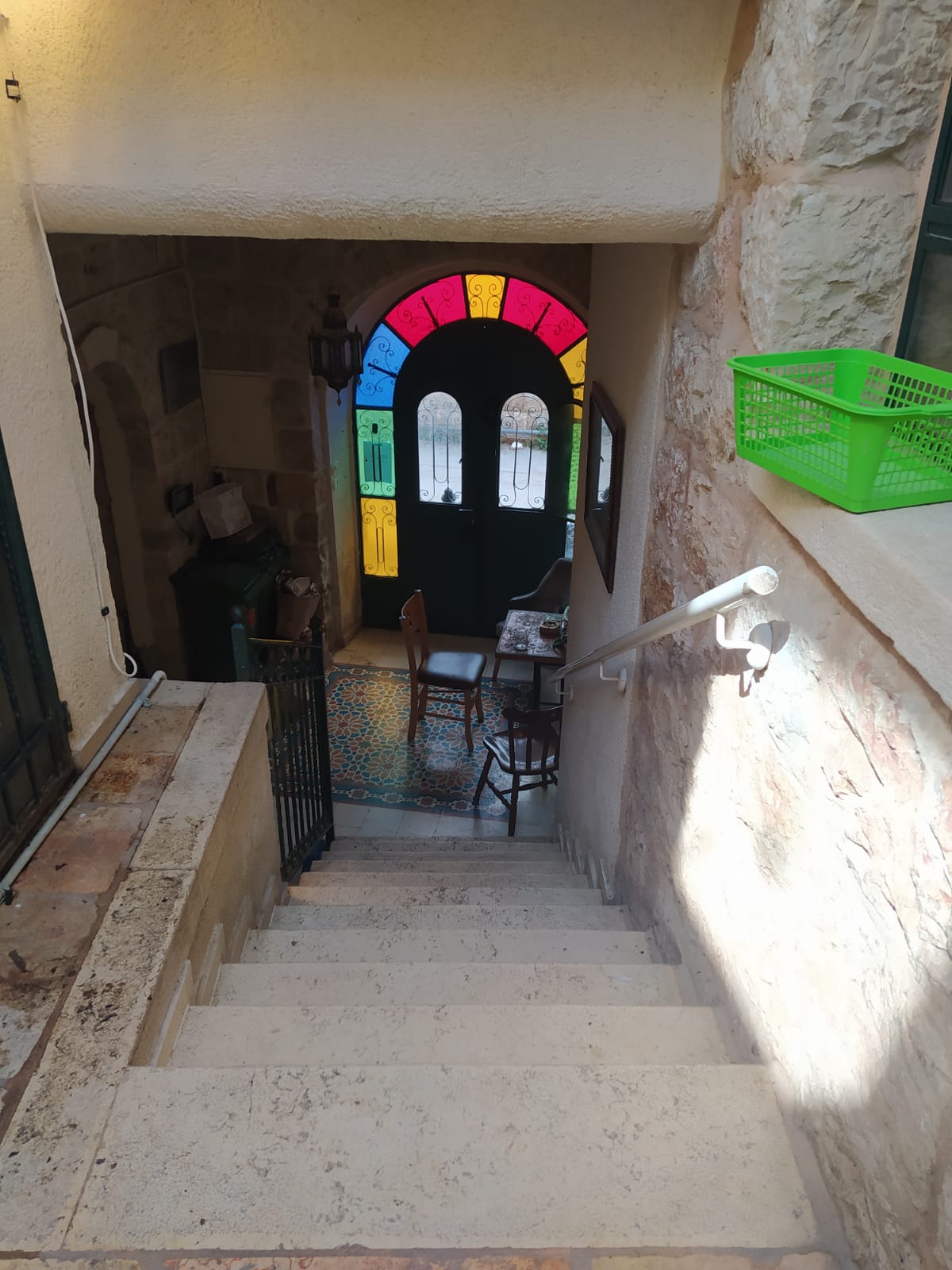
But why is there even a need for an alternative to existing psychiatric institutions?
'Those familiar with psychiatric hospitalization know that over the years there have been many people who were hospitalized in psychiatric wards and returned with less than positive experiences, mainly due to the perception issue – in wards, you usually see the illness and diagnosis and treat them, whereas at the Soteria House, we see the person themselves. We believe that every resident living here has things they love to do, hobbies, family, and also social life. It's true that they also have a diagnosis and struggle, but that's just part of their personality. The difference in approach is essential.
'The people living with us are not "patients", but rather "residents",' Shekel emphasizes, 'They come to live in a shared house, with a daily routine that includes cleaning, activities and workshops, alongside treatments and staff like psychologists, psychiatrists, and other necessary care professionals, all at the highest professional level. At any given time, ten residents live with us, and unfortunately, there's always a long waiting list, but that's the maximum we're equipped to handle.'
Tell us about your residents. What are they mainly diagnosed with?
'We have residents dealing with depression or anxiety, some are accompanied by delusions or suicidal thoughts, others with psychosis and other more or less familiar mental health issues. The severity of the illness can vary, but the common factor is that none are hospitalized here by force, only out of the desire and understanding that this is their path to recovery. The main thing our place is based on is communication with the residents because it's clear to us that they're the only ones who can ultimately make the decisions for their lives.'
With Hope and Faith
What does a typical workday look like for you?
'In my role, I work with other companions in 12-hour shifts – day and night. There's also a weekend duty, where we need to be present throughout Shabbat. I arrive at work, and from that moment, I am responsible for ensuring the house operates well, in terms of meals, cleaning, and all the other necessary things. Sometimes the residents want to leave the premises for various reasons, and then they need accompaniment. Of course, we accompany them. We're also responsible for the medications, but we never administer them forcefully. Some residents prefer to take medications on their own, and some prefer that we give them. Everything is done in a very individual and personal way.'
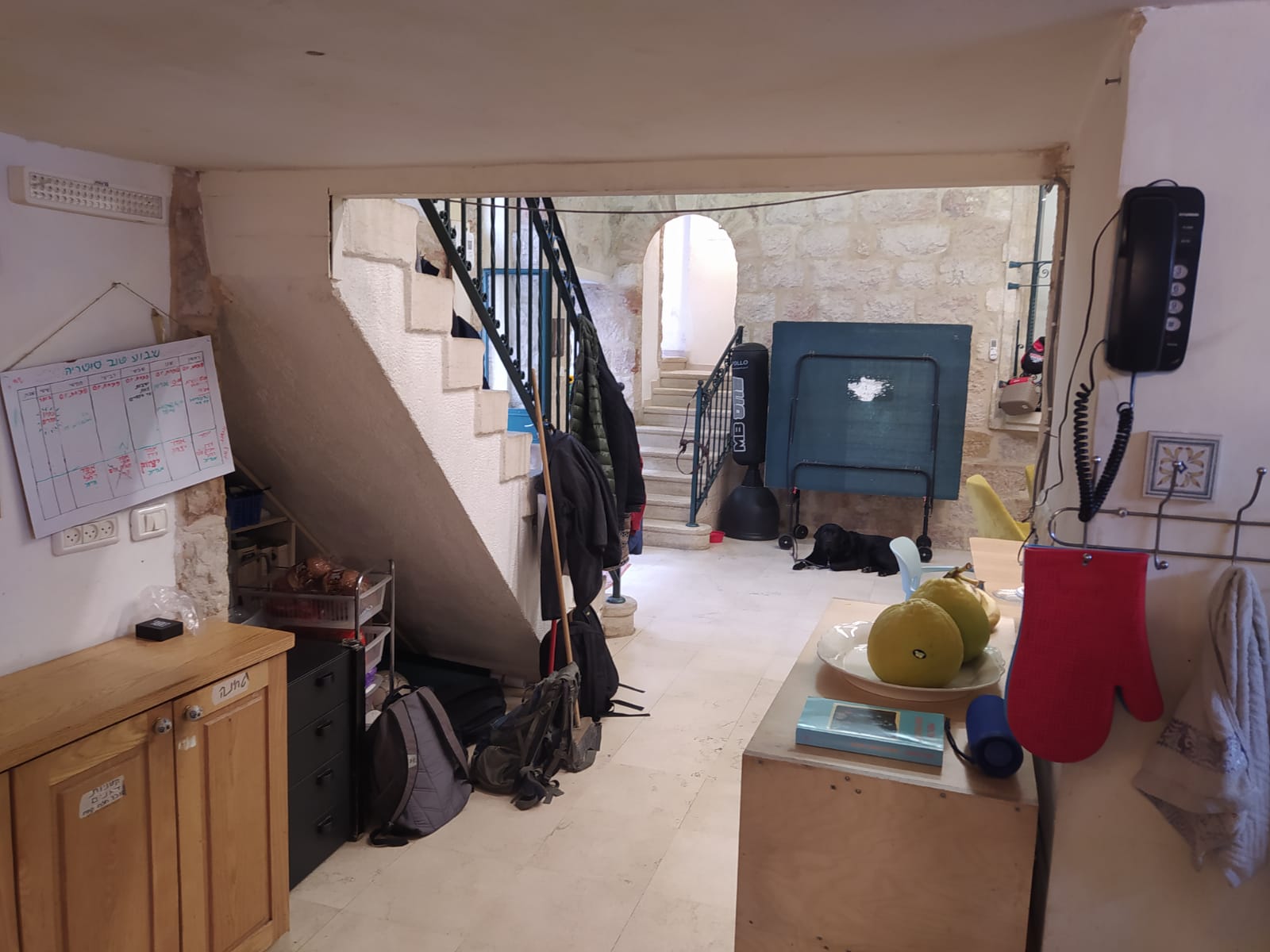
Obviously, working with mental health patients is very challenging. What do you think is the most difficult part?
'It’s true that the work isn't easy, sometimes there are residents with violent outbursts or severe attacks, and it also demands a lot physically. But at the same time, I must mention that I learn a lot from the residents, and we often have very beautiful and good times together. Just recently, I had the chance to go with one of them to pray at the Kotel, and when I saw him praying with all his heart, understanding so well what he has to ask for, I felt envious of him.
'Regarding the difficulty – I think the greatest difficulty is sitting opposite a person who's in an attack or trapped within themselves and seeing them in such times. Especially when you try to empathize with them and connect to their emotions, and then you realize that you also experience some of them sometimes because there's nobody in the world who doesn't feel such emotions occasionally. It's very frightening and threatening.'
Is there a way to help in such situations?
'Of course, there are many ways to help – besides medications and treatments, there are also technical actions that can be helpful, some even small, like making a cup of tea for someone having a panic attack or assisting by bringing a meal to the bed of a resident unable to gather strength to get up. I've also had the chance to play the guitar for someone or take them out for dinner. There's much to do, and we really strive to act constantly.'
And what gives you strength when you accompany difficult and complex situations?
'First of all, my personal story. Thank God today I'm married, a father of four, working, earning a living, and functioning. It shows me how even the difficult stories I encounter can end in the best way possible. Additionally, I also feel great satisfaction in the job. I know it's performing a kindness in its simplest form, just as it says "And you shall do that which is right and good." Hashem didn't just let me experience the trial I endured in the past, and then the opportunity to work at the Soteria House. He wants me to help people, and this is my great privilege.'
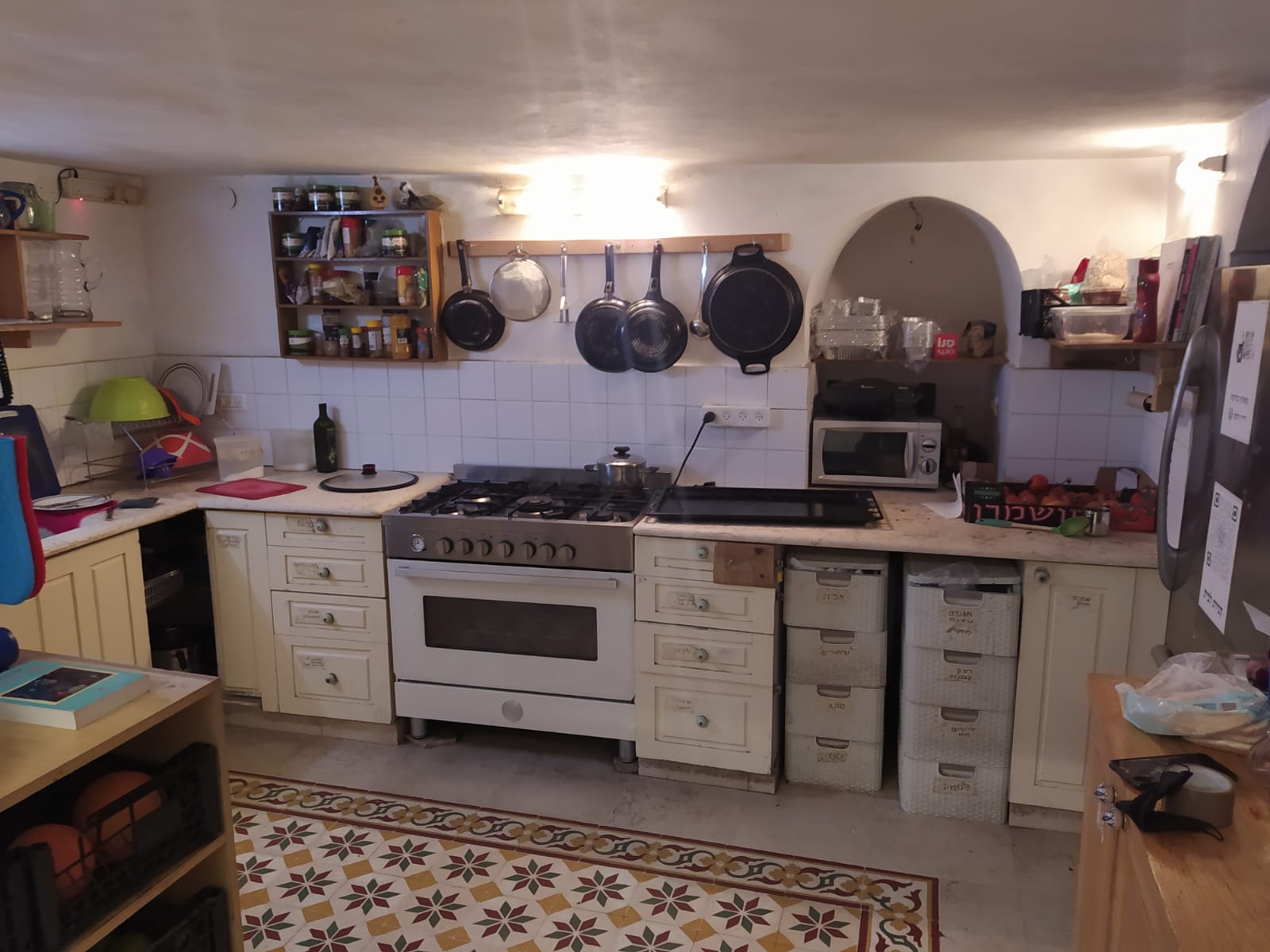
As a believer, do you feel that faith helps you in this profession?
'For me personally, it certainly helps. I see such difficult situations, and the only thing that helps you accept and deal with what you see is the understanding that Hashem is a King who desires life, and if He decided that this is how a certain person's life should look, then it's the best for them. Not to mention cases where an individual reaches suicidal thoughts, God forbid, then faith is the strongest thing that can lead them to choose life. In such cases, I tell the residents: "If Hashem, who is the King of the world, wants life, won't you want them?'"
'But on the other hand, I sometimes see residents who find it hard to accept things. Not everyone hospitalized here comes from a background of following commandments, and sometimes they don't want to hear about the subject, and that’s okay, I won't talk to anyone about topics that don't suit them.
'But one thing I emphasize to everyone – to succeed in coping with crises, we all need faith, not only in Hashem but also in ourselves. Once we have faith and hope, our chances of overcoming the difficulty and returning to life increase. I see it as part of my job – to give each hospitalized person the attention and heart, with much compassion, to help them find the strength within them and simply believe that they have a chance.'

